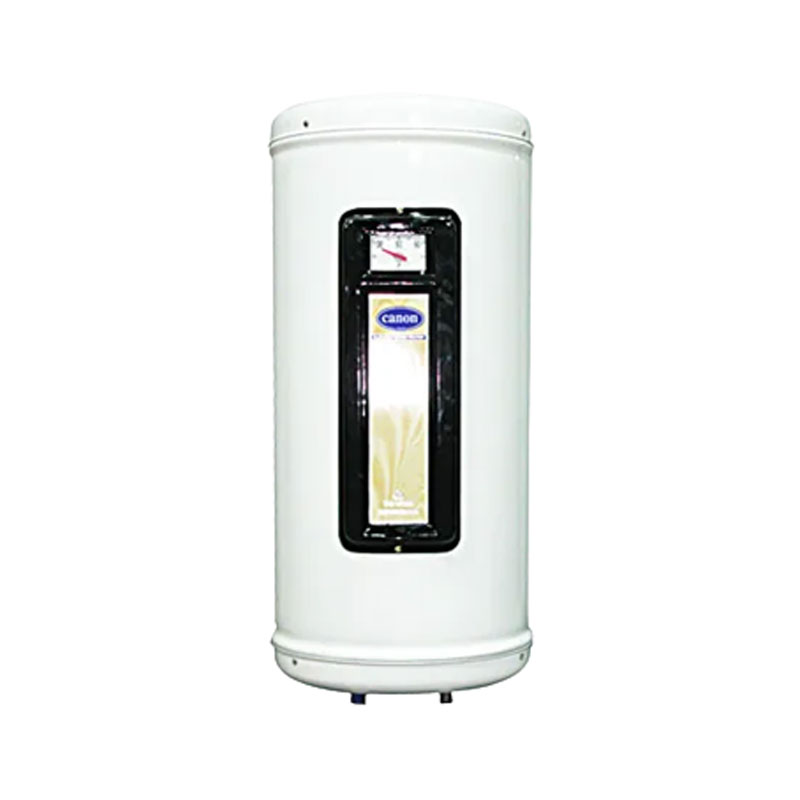Hot water is a key component of home comfort, essential for daily activities like bathing, cooking, and cleaning. Efficient water heating not only ensures convenience but also helps reduce energy consumption and save on costs. One effective solution for optimizing water heating in your home is using a gas geyser. This article will guide you through the benefits of gas geysers, how to choose the right one, and tips for maintaining and optimizing performance.
What is a Gas Geyser?
A 25 gallon gas geyser price in Pakistan, or gas water heater, heats water using gas instead of electricity. It operates by burning natural gas or propane to heat water, offering an efficient and cost-effective alternative to electric water heaters.
Definition and Functionality
Gas geysers heat water as it flows through the system, ensuring a continuous supply of hot water whenever needed. They use a heat exchanger to transfer heat from the burning gas to the water, providing hot water on demand.
Types of Gas Geysers
- Instantaneous Gas Geysers: Heat water instantly as it passes through the unit, perfect for households with high hot water demand.
- Storage Gas Geysers: Store heated water in a tank, ideal for homes with moderate hot water needs.
Benefits of Using Gas Geysers
Energy Efficiency
Gas geysers are generally more energy-efficient than electric models. They provide hot water only when needed, preventing the waste of energy that occurs with electric water heaters that continuously keep water warm.
Cost-Effectiveness
While gas geysers might have a higher upfront installation cost, their long-term savings on energy bills can more than compensate for the initial investment.
Environmental Impact
Gas geysers produce fewer greenhouse gases than electric water heaters, especially when the electricity is generated from fossil fuels. This makes gas geysers a more environmentally friendly option.
Choosing the Right Gas Geyser for Your Home
Size and Capacity
Choosing the right size depends on your household size and water usage. A correctly sized geyser ensures efficient operation and prevents either underperformance or unnecessary energy consumption.
Gas Type Compatibility
Your choice of gas geyser must match the type of gas available in your home—whether it’s natural gas or propane.
Brand and Model
Research and compare different brands and models. Opt for well-reviewed brands with reliable customer support and good after-sales service.
Installation of Gas Geysers
Professional Installation vs. DIY
It’s recommended to hire a professional for gas geyser installation since it involves gas lines and must meet safety standards. While DIY installation is possible, professional installation ensures safety and compliance with regulations.
Tools and Equipment Needed for DIY
If you choose to install the geyser yourself, you will need tools like wrenches, gas connectors, and proper venting systems to ensure a safe setup.
Safety Precautions
Follow local building codes, ensure proper ventilation, and check for gas leaks during installation. Safety is crucial to prevent gas leaks and other hazards.
Optimizing Gas Geyser Performance
Regular Maintenance Tips
To keep your gas geyser operating efficiently, check for leaks, inspect the burner, and ensure the venting system is clear. Routine maintenance will extend the lifespan of the unit and maintain its performance.
Cleaning and Descaling
Over time, mineral deposits may build up in the geyser, reducing efficiency. Regularly clean and descale the unit as recommended by the manufacturer.
Adjusting Temperature Settings
Set the water temperature to an optimal level to balance comfort with energy efficiency. Setting the temperature too high increases energy consumption and can pose safety risks.
Troubleshooting Common Issues
No Hot Water
If your gas geyser isn’t producing hot water, check the gas supply, pilot light, and thermostat settings. Ensure the system is receiving power and that water flow is unobstructed.
Inconsistent Water Temperature
Temperature fluctuations could indicate a problem with the thermostat or burner. Consult the user manual for troubleshooting or call a professional if necessary.
Gas Supply Issues
Low gas pressure or a gas leak may disrupt performance. If you suspect a gas supply problem, contact your gas provider or a professional technician immediately.
Cost Considerations and Savings
Initial Cost vs. Long-Term Savings
While gas geysers may have a higher upfront cost compared to electric models, they are more cost-effective in the long run due to lower energy bills.
Gas vs. Electric Water Heaters
Gas water heaters typically have lower operating costs than electric ones, making them a more economical option over time.
Incentives and Rebates
Look into local incentives or rebates for installing energy-efficient appliances. These can help offset the initial cost of a gas geyser.
Environmental Impact of Gas Geysers
Reducing Carbon Footprint
Gas geysers burn cleaner than coal or oil, contributing to a reduced carbon footprint, especially when compared to electric heaters powered by non-renewable energy.
Efficient Gas Usage
Modern gas geysers are designed to maximize gas usage efficiency, further reducing their environmental impact.
Safety Tips for Gas Geysers
Proper Ventilation
Ensure that the geyser is installed in a well-ventilated area to prevent harmful gases from building up inside your home.
Leak Detection
Regularly check for gas leaks and use gas detectors to identify any issues. Address any leaks immediately.
Emergency Shutoff
Know where the gas shutoff valve is located and how to use it in case of an emergency.
Smart Gas Geysers: The Future of Home Heating
Integration with Smart Home Systems
Modern gas geysers can now integrate with smart home systems, allowing for remote control via smartphone apps.
Remote Control and Monitoring
Adjust settings and monitor energy usage from anywhere, helping you optimize both comfort and energy efficiency.
User Reviews and Experiences
Real-Life Examples
Reading user reviews and testimonials can give you insights into the performance and reliability of various gas geyser models.
Common User Feedback
Key areas of feedback often include ease of use, consistency of hot water, and customer service.
Expert Opinions
Experts can provide reviews and recommendations, helping you choose the best gas geyser for your needs.
Maintenance Services and Warranties
Choosing a Reliable Service Provider
Select a reputable provider for maintenance and repairs. Read reviews and check for service guarantees.
Understanding Warranties
Be sure to understand the warranty terms for your gas geyser. This will protect your investment and ensure necessary repairs are covered.
Regular Service
Routine service is key to extending the lifespan of your gas geyser and maintaining its efficiency.
Conclusion
A gas geyser from Al Fatah Electronics can significantly enhance your home’s energy efficiency, save money on utility bills, and reduce your carbon footprint. By selecting the right model from Al Fatah Electronics, ensuring proper installation, and performing regular maintenance, you’ll enjoy a steady and reliable hot water supply. Whether you opt for a smart gas geyser or a traditional model, Al Fatah Electronics offers a wide range of high-quality solutions to meet your modern water heating needs effectively.
FAQs
- What is the lifespan of a gas geyser?
Gas geysers typically last between 10 to 15 years with proper maintenance. - How often should a gas geyser be serviced?
It’s recommended to service your gas geyser annually. - Can a gas geyser be used with a solar water heating system?
Yes, gas geysers can complement solar water systems, providing hot water when solar power is insufficient. - Are gas geysers suitable for all climates?
Gas geysers work well in most climates, though additional insulation may be needed in extreme temperatures. - What are the signs that a gas geyser needs replacing?
Signs include frequent breakdowns, inconsistent temperatures, or visible corrosion.


